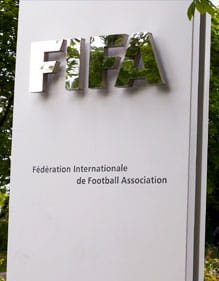|
Getting your Trinity Audio player ready...
|
Dear Corruption Watch: It has been suggested the South African government might not have known that, in funding the “Diaspora Legacy Fund”, it was paying a bribe.
Is this likely? And does it make a difference from a legal perspective? And is the minister of sport correct when he says it is none of the South African government’s business how the money was spent?
Yours sincerely,
Sham Legacy
Dear Sham Legacy,
Bribery and corruption deals with people who attempt to buy influence with public officials and other decision-makers.
The Organisation for Economic Co-operation and Development’s Anti-Bribery Convention, to which South Africa is a signatory, requires each country to establish laws to make it a criminal offence for any person intentionally offering, promising or giving money or other advantage (whether directly or through intermediaries) to a foreign public official. The law must also cover that official or third party acting or refraining from acting in relation to the performance of official duties so that the person bribing the official could obtain or retain business or other improper advantage, particularly in the conduct of international business. (Phew! Sorry about the legalese!)
South Africa has indeed passed anticorruption legislation in line with the convention. The main anticorruption law is the Prevention and Combating of Corrupt Activities Act of 2004. It defines corruption as an offence when people accept or give a “gratification” to anyone for his benefit, or that of another. And to induce the other party to act in an improper manner when performing their duties.
The most fundamental element of this law concerns the person’s intent. To be convicted of bribery, a person must have intended the benefit conferred to have an influential effect, leading the person receiving it to take, or refrain from taking, action.
As long as the item or money was not “intended” to influence the recipient’s conduct, then bribery has not occurred. However, a bare assertion of a legitimate purpose by the person at trial will not be persuasive in light of any circumstances that suggest wrongful intent.
 In respect of the allegations of a bribe paid by the South African government to secure the World Cup, therefore, it is important that the government’s intention in paying the $10-million be established to impute guilt. Whether South Africa thought it was paying for the Diaspora Legacy Fund or not is crucial. But it can’t just be accepted that the money was not paid as a bribe. The evidence in its totality has to be analysed to establish that the government did not have wrongful intent.
In respect of the allegations of a bribe paid by the South African government to secure the World Cup, therefore, it is important that the government’s intention in paying the $10-million be established to impute guilt. Whether South Africa thought it was paying for the Diaspora Legacy Fund or not is crucial. But it can’t just be accepted that the money was not paid as a bribe. The evidence in its totality has to be analysed to establish that the government did not have wrongful intent.
The minister has stated that it is “none of government’s business” as to how the money was spent. Under the act, he may well claim that all it is necessary to know is whether the intention of the government was to bribe the beneficiaries, but because the money in this case was public money, the government’s action is also subject to the rules governing the use of these funds – for example, the Public Finance Management Act.
We believe it is very much the business of the government, through the auditor-general or others, to know how the money was spent. Public money cannot simply be donated unconditionally – it must be specified how it is to be spent and audited against that specification.
If the government had any knowledge of any wrongful intent by Fifa on how the money was to be used, then it has a duty to report this and the jurisdiction to act upon it under the act. And circumventing the rules applying to governance of public money is a key bit of “circumstantial” evidence indicating that it knew this was an illegal payment.
Do you face an ethical dilemma? Do you suspect corruption? If you need help to resolve such issues, write to the Corruption Watch experts at letters@businesstimes.co.za. Mark your letter ‘Dear Corruption Watch’.
• This article was first published in Sunday Times: Business Times



